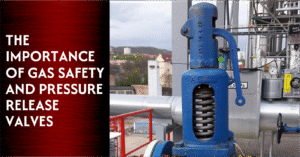Hydrotreated Vegetable Oil (HVO) is a type of renewable diesel fuel made from vegetable oils or animal fats. The benefits of HVO are numerous and span across environmental, operational, and economic aspects:
Environmental Benefits
Reduced Greenhouse Gas Emissions: HVO can significantly lower greenhouse gas emissions compared to conventional diesel, contributing to reduced carbon footprints.
Sustainable and Renewable: HVO is produced from renewable resources such as used cooking oils, animal fats, and other waste materials, making it a sustainable alternative to fossil fuels.
Lower Particulate Matter Emissions: HVO burns cleaner than traditional diesel, resulting in lower emissions of particulate matter, which can improve air quality and public health.
Operational Benefits
Compatibility: HVO can be used in existing diesel engines without modifications, making it a drop-in replacement for conventional diesel.
Improved Engine Performance: HVO has a higher cetane number than conventional diesel, which can lead to more efficient combustion and smoother engine operation.
Cold Weather Performance: HVO performs better in cold temperatures compared to biodiesel (FAME), as it has a higher cloud point and does not gel as easily in low temperatures.
Economic Benefits
Reduced Maintenance Costs: Due to its cleaner burning properties, HVO can lead to lower engine wear and tear, potentially reducing maintenance costs and increasing engine lifespan.
Availability and Supply Chain: As the production of HVO grows, it can help diversify fuel supply chains and reduce dependency on fossil fuels.
Market Incentives: In many regions, the use of HVO is incentivized through government policies, subsidies, and tax breaks aimed at promoting renewable energy sources.
Regulatory Compliance
Meeting Emission Standards: HVO can help businesses and governments meet stringent emission regulations and targets for reducing carbon emissions.
Sustainability Certifications: HVO often comes with sustainability certifications, such as the Roundtable on Sustainable Biomaterials (RSB) certification, ensuring that the production process adheres to sustainable practices.
In Conclusion
Overall, HVO presents a viable and sustainable alternative to conventional diesel, offering numerous benefits that can help in the transition towards cleaner and more renewable energy sources. If you would like to find out about HVO and how we use it in our products and solutions, then please just get in touch.






